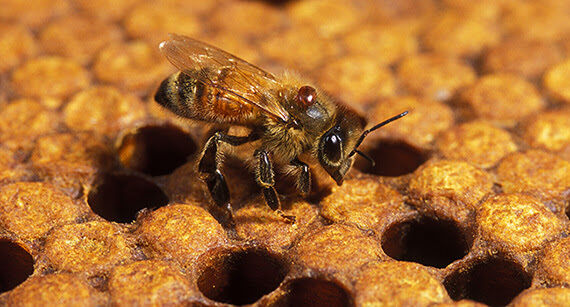Commercially available cell line rapidly detects African swine fever virus
Scientists from the U.S. Department of Agriculture’s Agricultural Research Service have identified a new way to detect the presence of live African Swine Fever Virus that minimizes the need for samples from live animals and provides easier access to veterinary labs that need to diagnose the virus.
"We have identified a cell-line that can be used to isolate and detect the presence of the live virus," said ARS scientist Douglas Gladue. "This is a critical breakthrough and a tremendous step for African Swine Fever Virus diagnostics."
There are currently no available vaccines to prevent ASFV, and outbreak control has often relied on quarantining and removing infected or exposed animals. Until now, effectively detecting live ASFV required collecting blood cells from a live donor swine for every diagnostic test, because the cells could only be used once. The new cell line can be continuously replicated and frozen to create cells for future use, reducing the number of live donor animals needed.
The new cell line is also commercially available to veterinary diagnostic labs that traditionally did not have access to swine blood cells needed to test for live ASFV.
Recent outbreaks of ASFV outside the African continent started after a single introduction of ASFV in the Republic of Georgia in 2007. The disease has recently spread to China and south east Asian countries. The current "Georgia" outbreak strain is highly contagious and lethal in domestic pigs. Even though the virus is not currently present in the United States, the U.S. swine industry could suffer substantial economic losses should an outbreak occur.
This research, which is highlighted in this month’s issue of Viruses, was funded through an interagency agreement with the Science and Technology Directorate of the U.S. Department of Homeland Security, U.S. Department of Energy and the U.S. Department of Agriculture. A provisional patent application for this research was filed in April 2020 and the technology is now available for license. ARS scientists at the Plum Island Animal Disease Center in Plum Island, New York, will continue to perform research and work towards finding tools to control the spread of ASFV in the nation.


